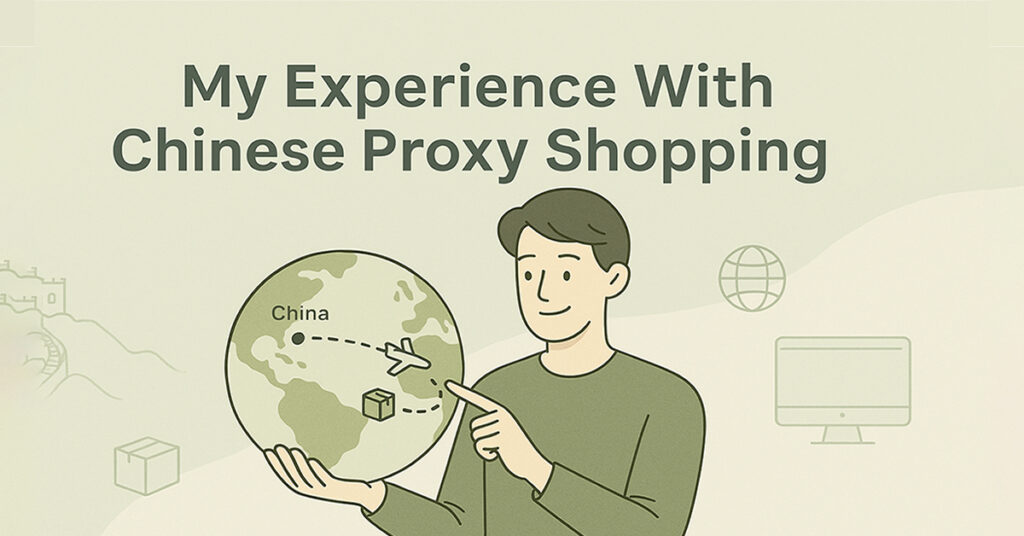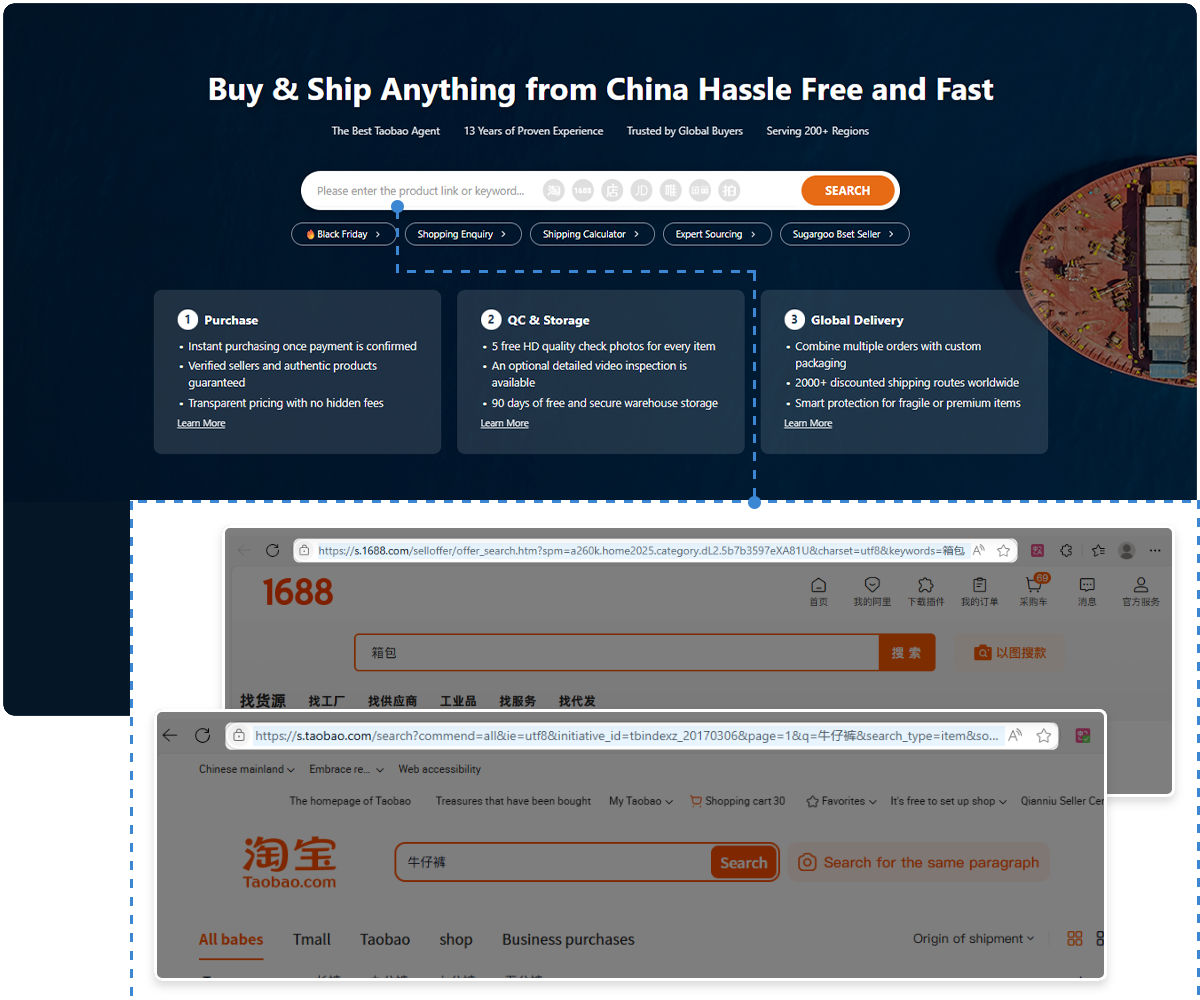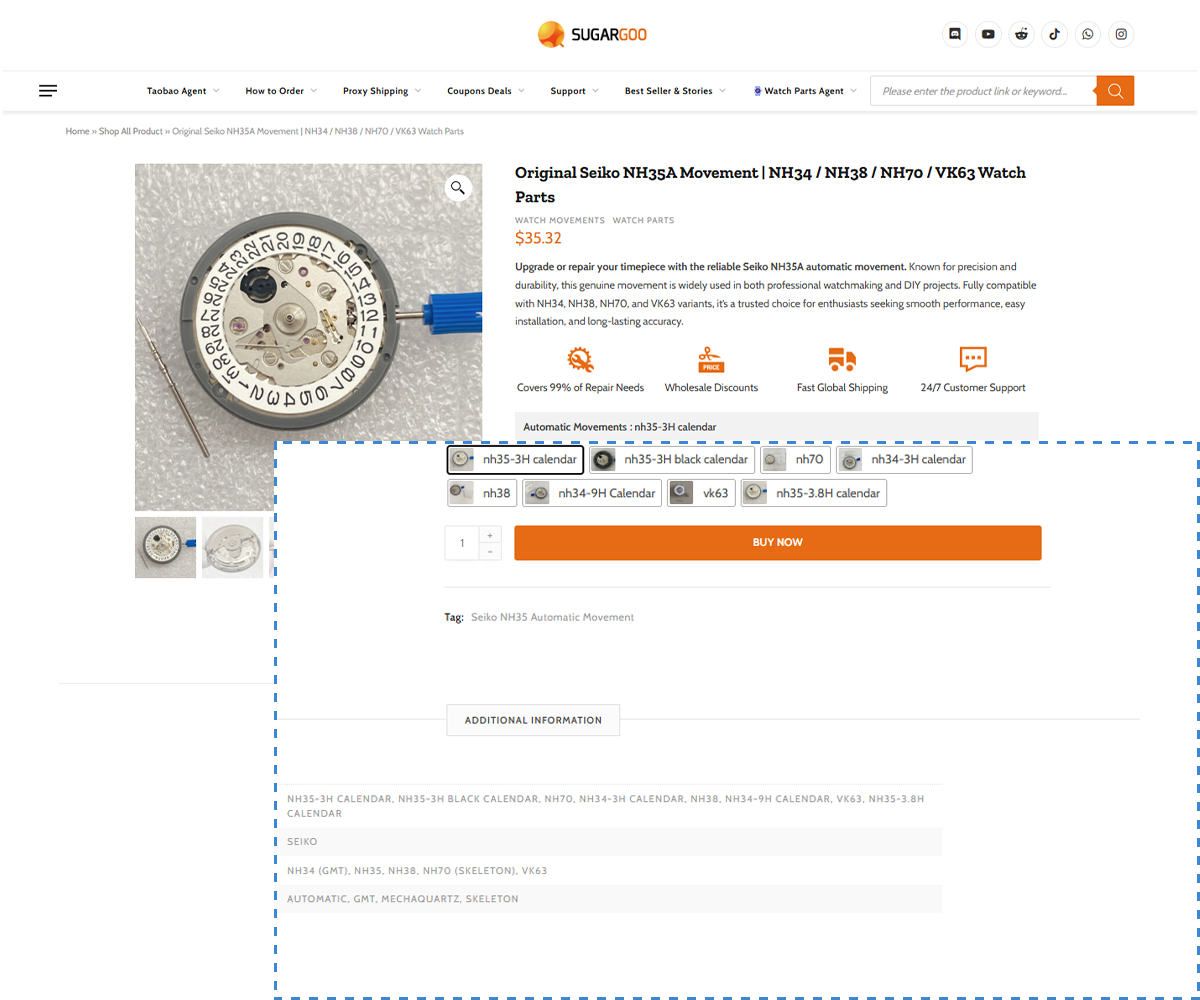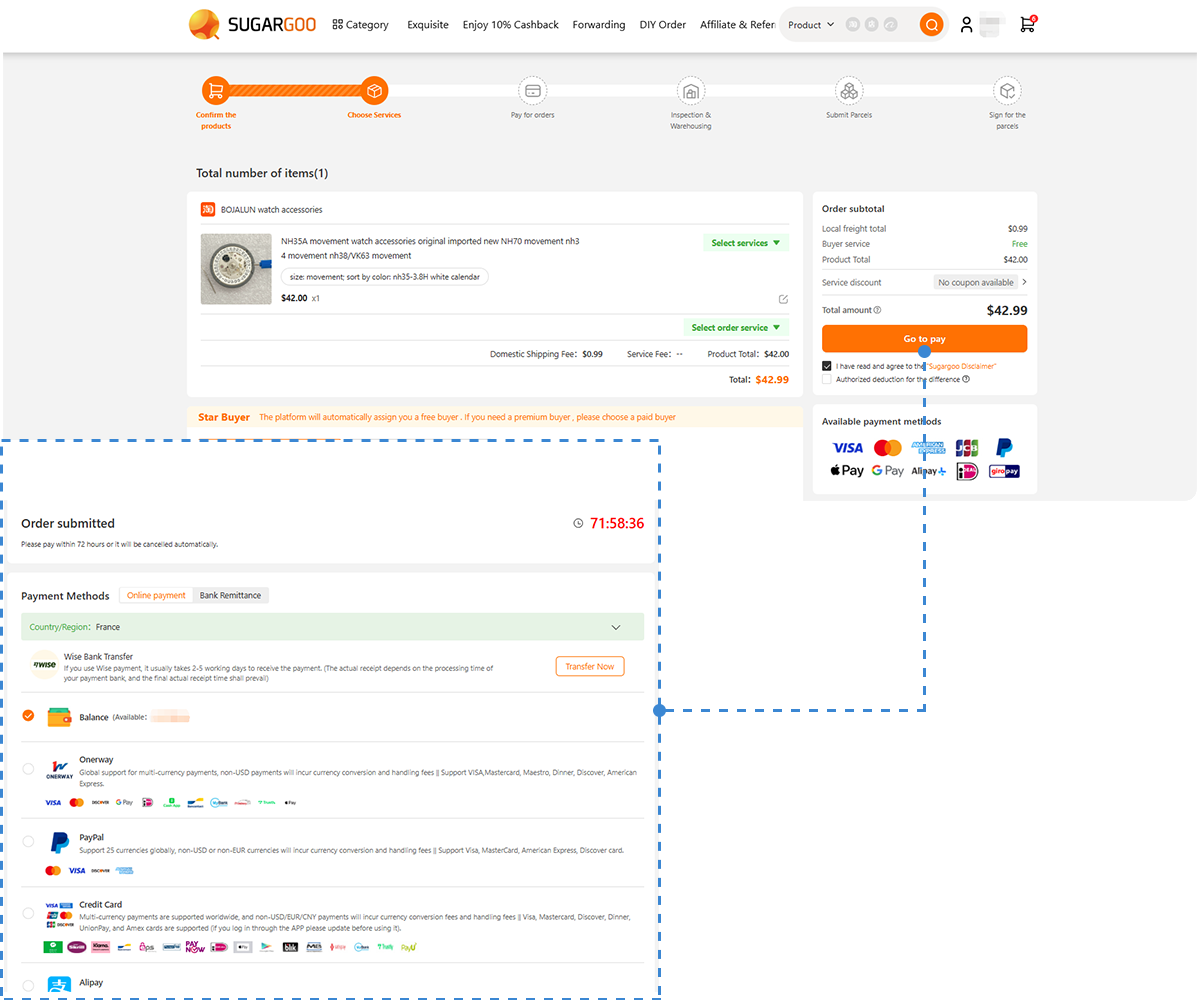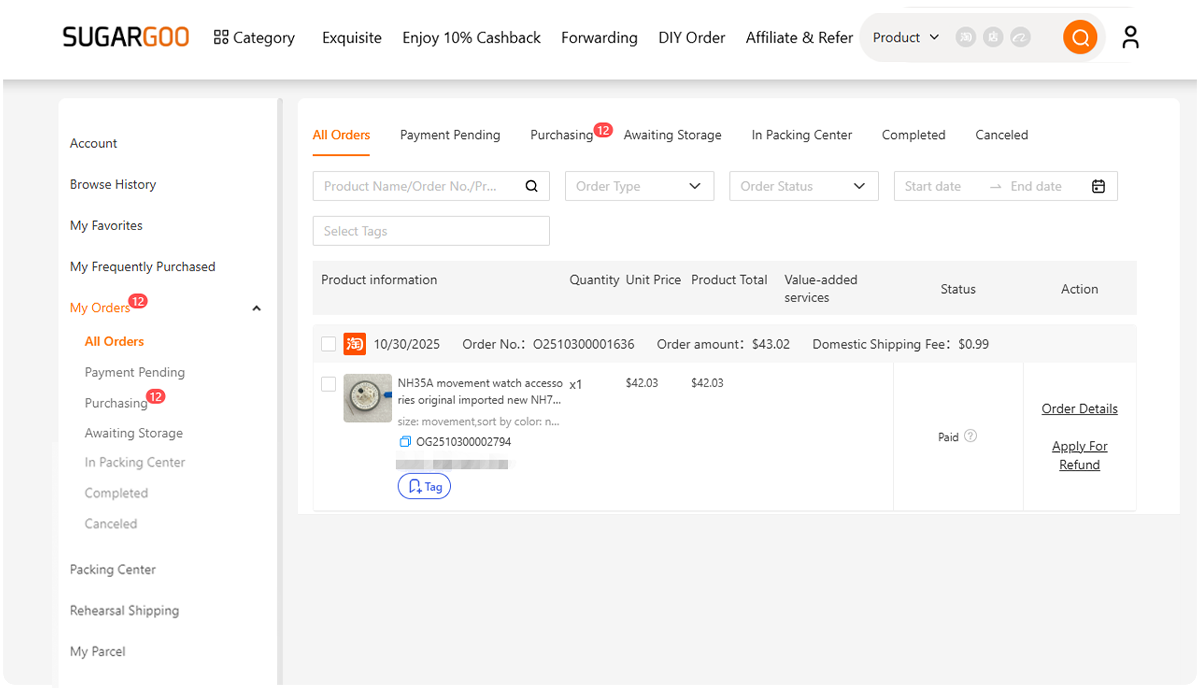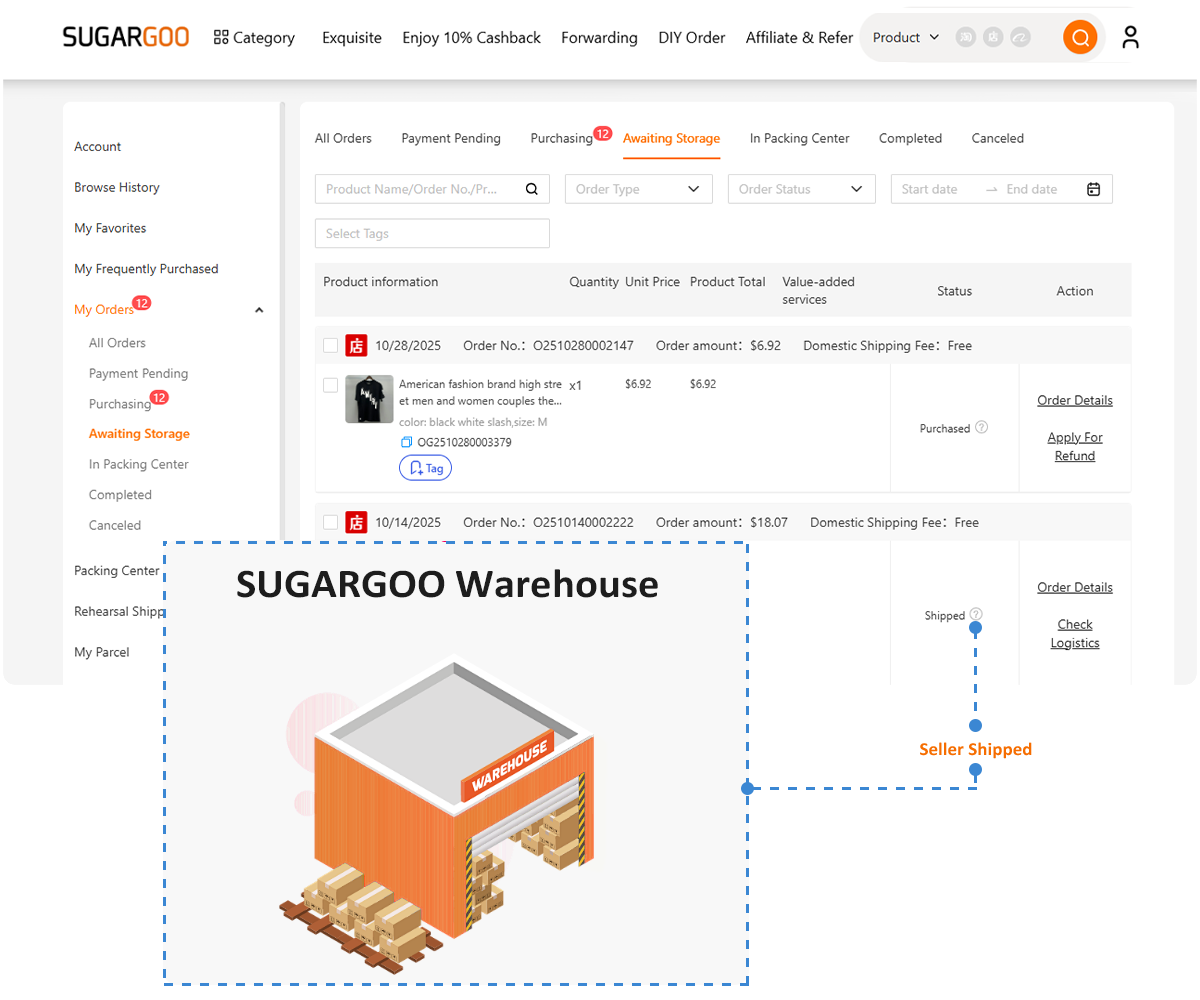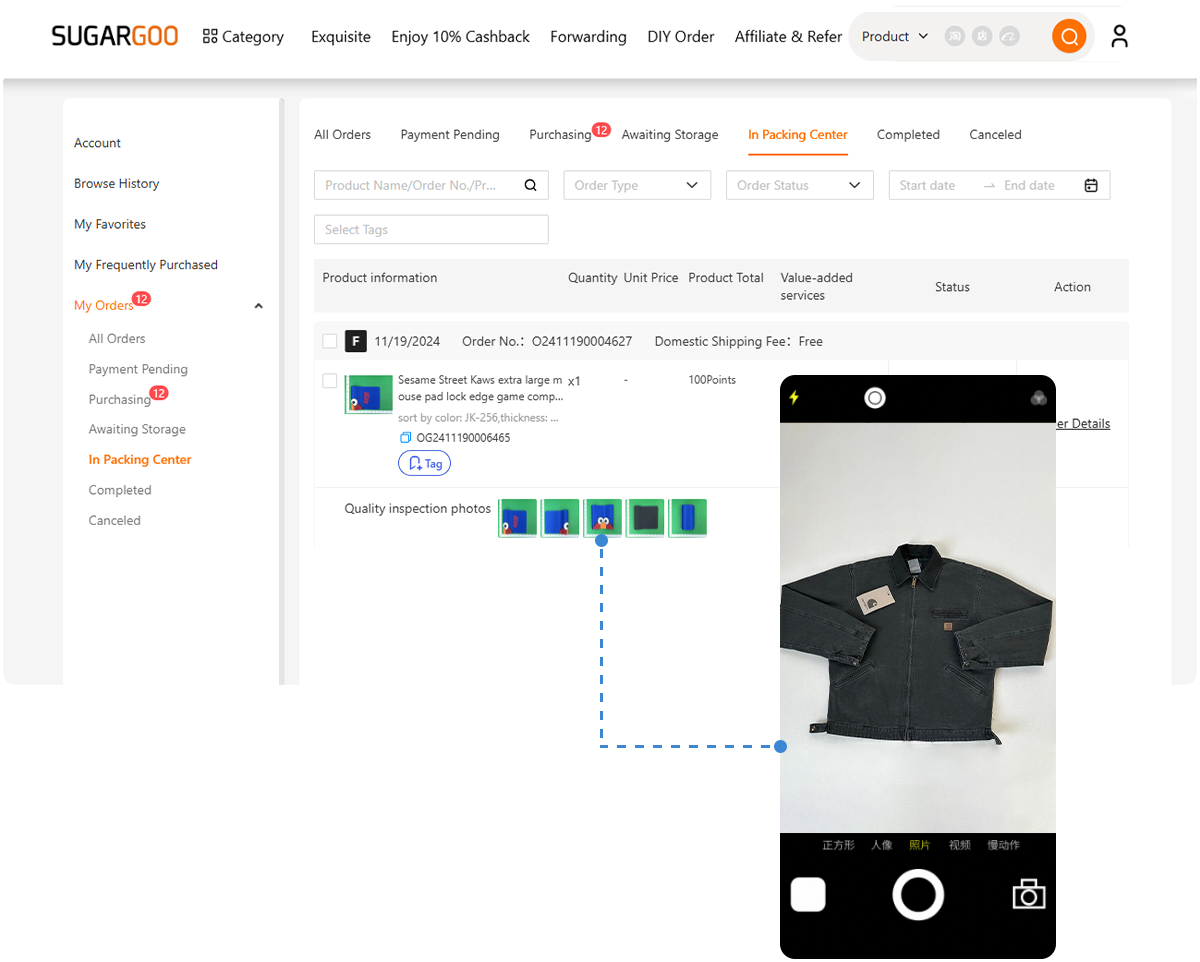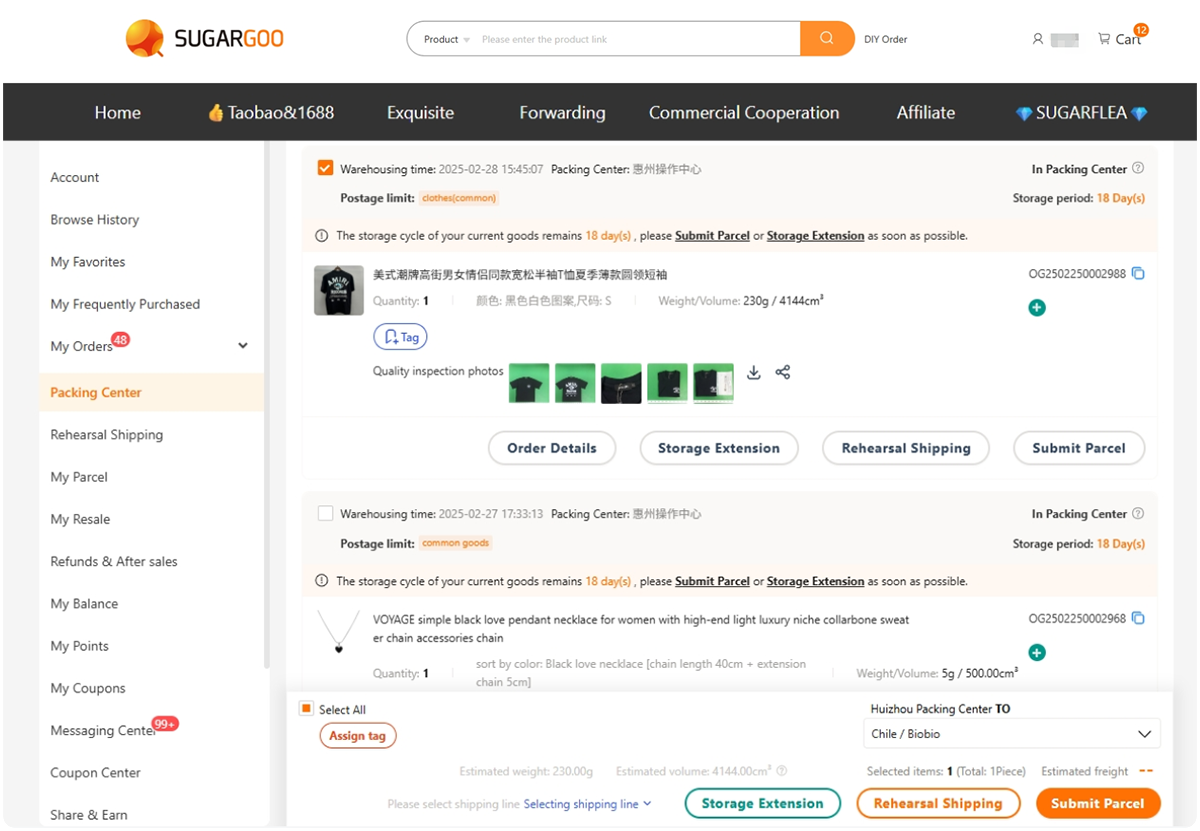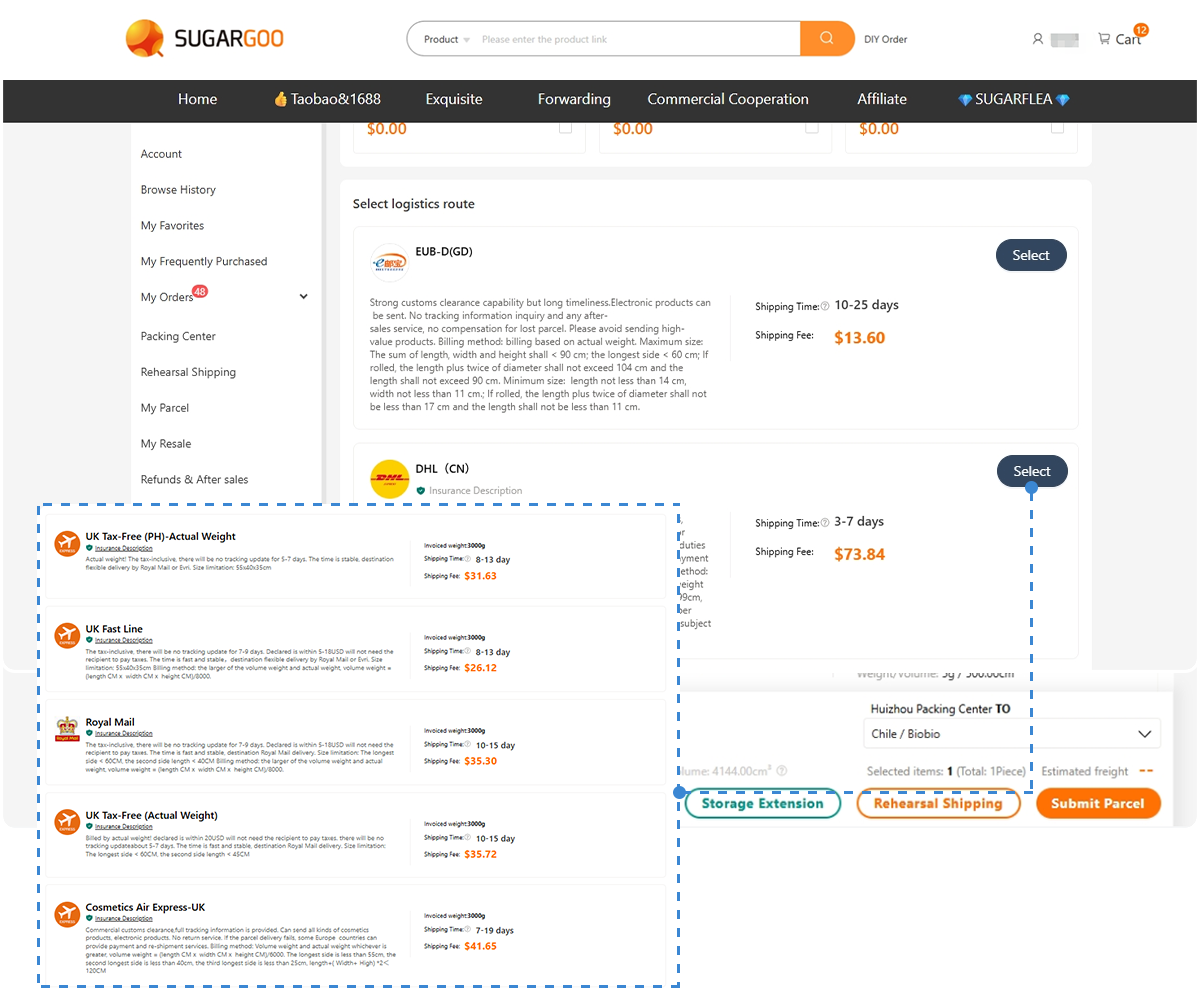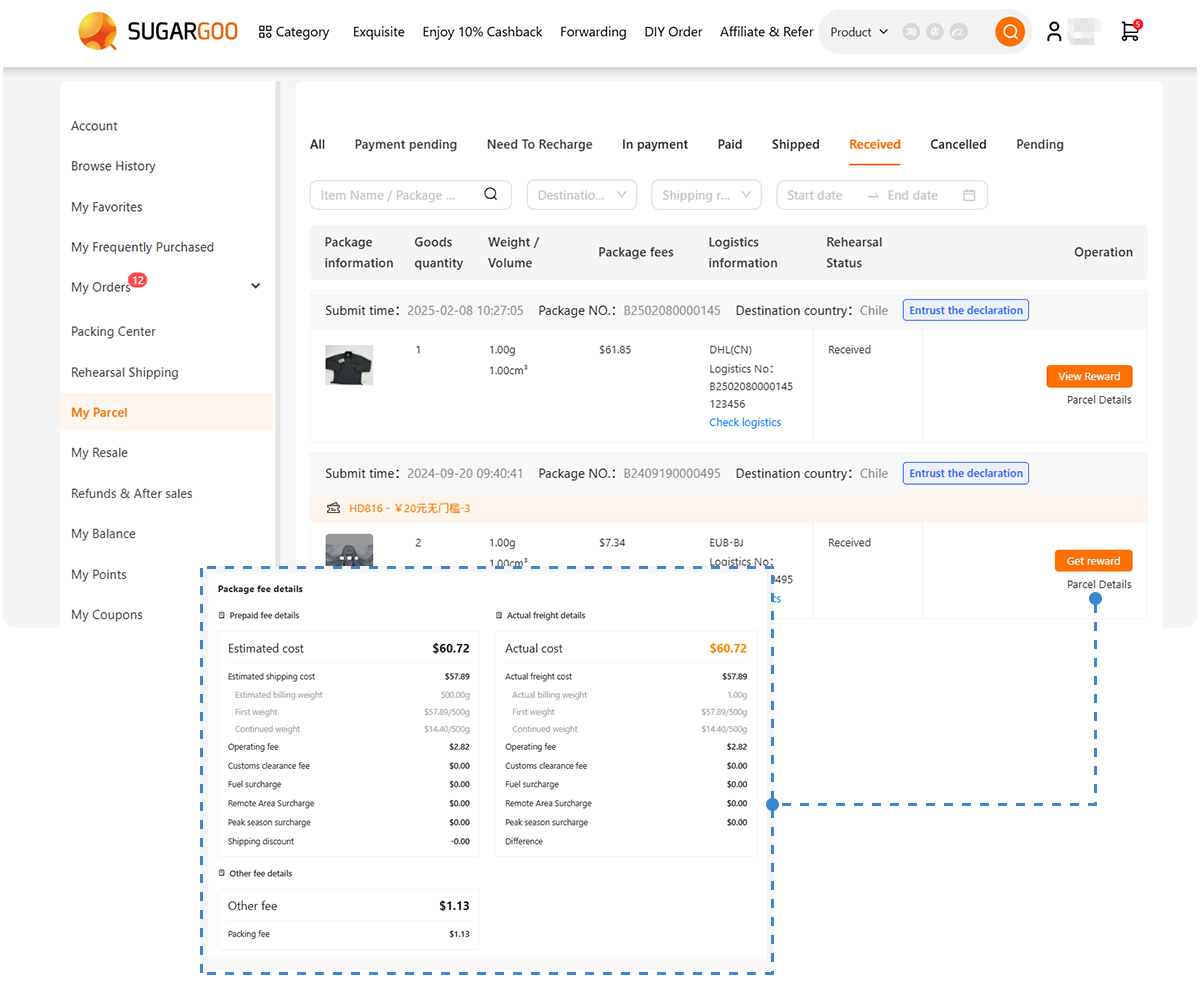The first time I tried browsing Taobao from abroad, I felt like I had discovered a parallel universe of shopping. There were quirky gadgets I’d never seen on Amazon, shoes that looked like they came straight from fashion week, and kitchen tools selling for just a fraction of what I usually paid locally. If you’ve ever looked at Taobao, 1688, or JD.com while living outside China, you probably know the same feeling: excitement mixed with frustration.
Here’s the problem. The entire site is in Chinese, the sellers only take Alipay or WeChat Pay, and international delivery isn’t really an option. I remember filling a shopping cart with things I wanted, only to give up because I couldn’t pay or ship them. That’s when I learned about proxy shopping services—companies that act like your shopping assistant in China. Instead of you struggling with payments and logistics, they step in to handle the messy parts.
Why Services Like This Exist
Think about it: Chinese goods are in demand everywhere. Maybe you want affordable homeware, maybe you’re chasing rare anime collectibles, or maybe you run a small store and need wholesale prices from 1688. The appetite is huge.
But then the barriers appear:
- Language: Unless you read Chinese, it’s nearly impossible to understand size charts or product details. Google Translate rarely helps with technical descriptions.
- Payment: I once tried to sign up for Alipay overseas. Between ID checks and region locks, it felt impossible. That’s the reality for most of us—these payment tools don’t really work outside China.
- Delivery: Sellers generally only ship domestically. If they do ship abroad, it’s usually expensive and limited to a handful of countries.
- After-sales: Even if you did manage to buy something, what happens if the product arrives broken? Arguing with a seller in Chinese is not something most people can do.
So it makes sense that shopping agents appeared. They give overseas buyers the chance to shop like locals, without running into all of these roadblocks.
What a Proxy Shopping Service Actually Does
Here’s how I usually explain it to friends: imagine you’re in another country and ask a local friend to buy things for you. You send them the link, transfer the money, and they place the order, check the package, and mail it to you. Proxy platforms work exactly like that—only more professional.
The steps look roughly like this:
- You paste the link from Taobao, 1688, or JD.com into the proxy website.
- You pay using whatever works best for you—Visa, MasterCard, Apple Pay—and the agent buys the item in China.
- The seller ships it to the proxy’s warehouse.
- Staff open the box, take 3–5 photos, and let you decide if everything looks right.
- You request extra services (remove packaging, reinforce with bubble wrap, add insurance).
- The proxy then ships it abroad to your home.
Unlike cross-border sites such as AliExpress, where only certain products are exported, an agent-assisted service gives you access to almost anything you can find on Chinese marketplaces.
The Two-Step Payment Model
I like to think of it as “two shopping trips rolled into one.”
First Payment: Securing the Items
- You paste the product link into the platform.
- The page is translated, prices show in your currency, and you pay in the way that feels normal to you.
- This payment covers the product itself plus the cost of shipping it inside China to the warehouse.
- When the warehouse receives it, you get 3–5 free inspection photos.
- If there’s a problem—wrong color, visible defect—you don’t chase the seller yourself. The platform handles that conversation in Chinese for you.
Second Payment: Sending It Abroad
- Once your items have arrived and you’re happy, you choose how to ship them internationally.
- Many people consolidate—removing extra packaging and combining multiple boxes into one. It’s much cheaper.
- The second payment is for international shipping plus any extra services like insurance or reinforced packaging.
- You get to pick the speed:
- Dedicated express lines (5–10 days).
- Couriers like DHL or UPS.
- Economy post (15–30 days).
- A tracking number is provided, so you can follow the parcel until it lands at your door.
This two-step approach keeps things clear: first you pay to get the product safely into the warehouse, then you pay again once you’re ready to send it abroad.
The Core Problems It Solves
Payment headaches Forget about trying to register Alipay from abroad. With an agent, you just use Visa, whichever you already use for normal online shopping.
Language walls Instead of puzzling over machine translations, the platform shows you the product in English (or your chosen language) and even double-checks details with sellers if needed.
Shipping puzzles There are so many lines: fast ones, cheap ones, special ones for electronics. The proxy knows which is suitable. If you’ve ever worried about shipping a battery-powered gadget, the agent helps you choose a compliant route so it doesn’t get stuck at customs.
After-sales drama I once saw a cracked item in QC photos before it left the warehouse. I just clicked “return,” and the platform spoke to the seller on my behalf. No awkward messages, no endless waiting.
Extra perks
- 3–5 photos per item so you actually see what you’re paying for.
- Free storage for about three months, giving you time to wait until multiple orders arrive before shipping.
- Add-ons like waterproof labels or silica gel packs—small details that matter for long-distance parcels.
Real-Life Scenarios
- Overseas Chinese families: stocking up on favorite snacks or buying festival decorations you just can’t find locally.
- Collectors: chasing limited-edition sneakers, anime figures, or celebrity photo books.
- Entrepreneurs: ordering bulk goods from 1688 to resell at local markets.
- Challenging shipments: laptops with batteries, liquids, or furniture pieces. The proxy guides you toward the right shipping line that legally handles these products.
How It Stacks Up Against Other Options
- AliExpress or Amazon Global: only a narrow slice of products make it to these sites, and prices are usually marked up. Proxy shopping gives you the entire catalog.
- Social media resellers: those “daigou” sellers may seem convenient but carry risks—no guarantees, no refunds. A proper platform is transparent and safer.
- Direct shipping from sellers: in most cases, not available. Even when it is, the costs are steep. Proxy services fill the gap.
Questions People Always Ask
“Isn’t it too expensive?” Not really. The service fee is small, and consolidation can save you more than you spend on the fee.
“What about fakes?” The QC photos are your safeguard. If something looks wrong, you return it before it leaves China.
“How long does shipping take?” Fast lines arrive in about a week. Economy routes take two to four weeks. You get to choose.
“Can I even return things?” Yes. You file a request, and the proxy staff contact the seller in Chinese.
“What if my parcel goes missing?” Every shipment is tracked, and you can buy insurance for peace of mind.
“Do I need to speak Chinese?” Nope. Pages are translated, and customer service speaks both languages.
“Is it safe to pay?” You can pay through the platform or directly with Visa or Mastercard. Both are secure.
“Can I order anything?” Almost. There are restrictions (liquids, powders, etc.), but the proxy tells you what can and can’t ship.
“How long can the warehouse hold my stuff?” Usually 90–100 days free of charge, which is more than enough to gather multiple orders.
Why It Matters
Proxy shopping turns an impossible task into something ordinary. Instead of struggling with language and payment issues, you just shop like you normally would, let the agent handle the difficult parts, and receive your package a few weeks later.
Looking forward, these services are only going to get better—more automation, clearer pricing, faster delivery lines. For international shoppers, that means Chinese e-commerce will feel less like a foreign system and more like just another online store.
Why I Recommend Sugargoo
Out of the many platforms I’ve tried, Sugargoo has been the most consistent. With over five years of experience, it combines translation, secure payments, reliable QC checks, and flexible shipping options in one place.
What stands out to me:
- Pages automatically translated, prices shown in my local currency.
- A choice of secure payments: Visa, MasterCard, and others.
- 5 QC photos for every single product.
- 100 days of free storage, which makes consolidating orders easy.
- Guidance on picking the correct shipping lines, even for tricky items like electronics or liquids.
And here’s a bonus: if you’re new, Sugargoo gives an 800 CNY shipping coupon when you register. That made my first international shipment much cheaper, and it’s a great way to test the service.
So if you’ve ever filled a Taobao cart but quit halfway through, now you don’t have to. With a proxy service like Sugargoo, you can actually check out, sit back, and wait for your Chinese shopping haul to arrive at your door.
